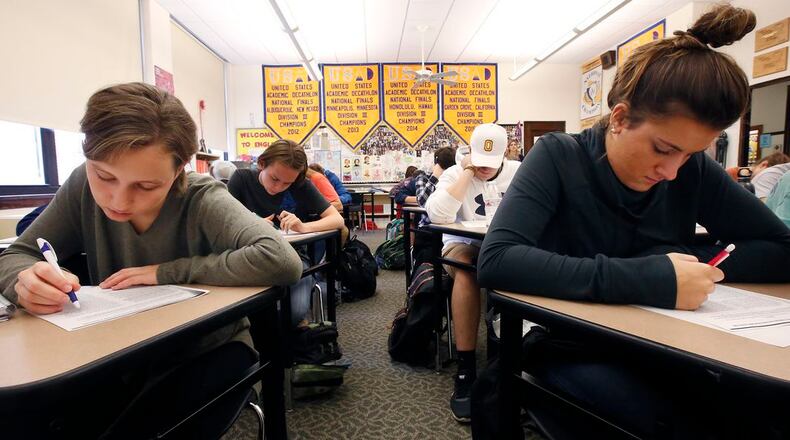Among Butler public school districts, some of the highest, four-year graduation rates were earned by Ross Schools at 98.3 percent, Monroe Schools at 95.8 percent and Lakota schools at 95.5 percent.
In southern Warren County Mason Schools earned a 96.9 percent graduation rate with the adjacent Kings Schools registering a 96.3 percentage rate.
ODE said the state’s four-year graduation rate continued to increase in 2019 from 85.3 to 85.9 percent, marking an 8 percent increase since 2010.
But the 2019-20 state report cards do not include overall grades or the usual detail on student achievement, performance index, year-over-year growth and gap closing,
Lowest in Butler County was earned by Hamilton Schools at 77.1 percent, New Miami Schools at 87.5 percent and Middletown at 89.4 percent.
State and area school officials, however, cautioned any review of the state’s incomplete annual report card has to take into account the extraordinary impact of the coronavirus shutdowns, which forced school districts to scramble to offer students remote learning from home.
Madison Schools Superintendent Lisa Tuttle-Huff said the annual Ohio report has long been criticized by many as only a limited-scope, snapshot of a district’s academic quality.
“Graduation rates are a good indication that schools are making sure that students have the academic knowledge; however, academics alone are not sufficient to assure life success,” said Tuttle-Huff, whose district saw a graduation rate saw a decrease from 94.5 for the 2018-19 school year to 93.5 in 2019-20.
“Students need to graduate being future ready, which means students have the content knowledge, the habits of success, the creative know how, and the way-finding abilities to successfully navigate life. Basically, our students need skills that help them to navigate a career and life. This is what we should be measuring, not just how students perform on tests,” said Tuttle-Huff.
Betsy Fuller, spokeswoman for Lakota Schools, said the 16,800-student district provides its own annual quality report card to the public, which includes many measurements not included in the state’s annual assessment.
“The class of 2020, and all of our students, faced many challenges during this school year (and) we are incredibly proud of our graduates and our graduation rate,” said Fuller.
“While state testing is not a part of this year’s report card, assessment and accountability are still important to us at Lakota. We continue to assess student growth through our internal measures and use that data to guide instruction and make student-centered decisions,” she said.
About the Author

